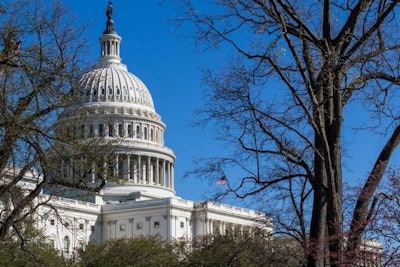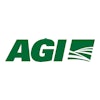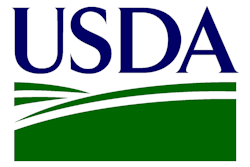
On Wednesday, the House of Representatives passed the United States Grain Standards Reauthorization Act (GSA) of 2020, S. 4054, extending it through September 30, 2025.
The Grain Standards Act serves a critical role in exporting grains and oilseeds of which about 50% is exported each year. The grain inspection system assures overseas buyers that an independent agency has certified shipments to their contracted specifications. This objective certification adds a competitive advantage to U.S. wheat and other commodities that helps maintain and grow export markets.
The bill, authored by Senate Agriculture Committee Chairman Pat Roberts, R-Kan., and Ranking Member Debbie Stabenow, D-Mich., passed out of the committee in June before being unanimously approved by the full Senate on November 16.
The National Grain and Feed Association (NGFA) commended the House for approving the GSA of 2020 (S. 4054), which President Trump is expected to sign into law.
“This legislation, which would reauthorize the U.S. Grain Standards Reauthorization Act for another five years, provides certainty while improving the official inspection and weighing system by providing more transparency, information-sharing, and better data,” says NGFA President and CEO Randy Gordon. “This legislation is foundationally important in providing for official grain inspection and weighing services through the U.S. Department of Agriculture’s Federal Grain Inspection Service, as well as that agency’s maintenance of the U.S. grain standards that are relied upon by buyers, sellers and end-users to merchandise grains and oilseeds in domestic and international markets.
"Ultimately, this law benefits U.S. and global consumers by enhancing the utility and efficiency of the grain marketing system," Gordon adds.
The GSA of 2020 also includes several improvementsadvocated by NGFA and the North American Export Grain Association (NAEGA)that they said will promote increased data and information-sharing to benefit the system and its users, including:
- Requiring delegated state agencies to notify users of Official inspection or weighing services at least 72 hours in advance of any intent to discontinue such services;
- Ensuring FGIS user fees are directed solely to inspection and weighing services;
- Reporting requests for waivers, exceptions and intrinsic quality and food safety factors received and granted by FGIS; and
- Directing FGIS to complete a comprehensive review of the current boundaries for the officially designated grain inspection agencies in the domestic marketplace.
During the reauthorization process, NGFA and NAEGA also highlighted their concerns about ongoing non-tariff trade barriers that periodically have created uncertainty for exports of U.S. grains and oilseeds, noting that the reauthorization bill retains a provision that prohibits the “use of false or misleading grade designations” on official grade certificates for U.S. grain exports.
The National Association of Wheat Growers (NAWG) applauds both the House and Senate for their bipartisan work to move the bill forward.
NAWG and U.S. Wheat Associates (USW) have worked collaboratively over the last year and a half to identify priorities for the reauthorization process, given the critical importance of the United States’ weighing and inspection system to our competitiveness in the world market.
“With our farmers facing tough economic challenges, including several years of low commodity prices and headwinds blowing against overseas demand, it is critically important that we at least maintain a smooth grain inspection system. We applaud Republicans and Democrats in the House and Senate for working together to get this piece of legislation passed by the end of the year,” says NAWG President and Cass City, MI farmer Dave Milligan. “To maintain a properly functioning grain inspection system, NAWG encourages the President to sign this bill into law before the closing of 2020.”
标准化的法律和制度,独立grain inspection makes U.S. wheat more valuable, says USW Chairman Darren Padget, a wheat farmer from Grass Valley, OR.
"The proof of that came this year when many of our overseas buyers expressed a real concern that the pandemic would interrupt our supply chain and FGIS inspections," he says.





















